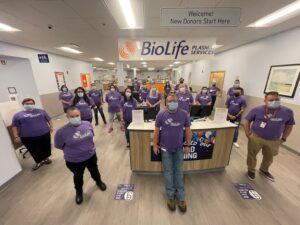Managing NDIS Supports for Children in Queensland: Early Intervention & Therapy Options
4 min read
The journey of managing NDIS Plan management in Queensland for children with disabilities comes with unique considerations and challenges. Children with disabilities have special needs and processes of learning and growing. Parents & gaurdians must choose NDIS support that best suits their children with special needs. Let’s undertsand why early intervention is a crucial foundation and what are the various therapies that NDIS plan management offers for children with disabilities.
Early Intervention: A Crucial Foundation
Early intervention is the most crucial step in providing holistic support for children with disabilities seeking NDIS benefits. In Queensland, parents and guardians can access early intervention services through the NDIS to support their child’s cognitive, social, and physical development. Identifying the special need for children with disabilities early on is crucial for early intervention. Parents and guardians can consult experts providing NDIS plan management in Queensland for comprehensive support.
Navigating Therapy Options
Queensland offers diverse therapy options for children with disabilities through the NDIS.
Understanding the types of therapies available and their potential benefits is crucial for effective NDIS Plan management.
Speech Therapy:
Speech therapy plays a vital role in supporting children with communication challenges in Queensland through NDIS Plan management. Speech therapy consists of numerous communiction techniques that assist children with disabilities to develop vital language skills, articulate words effectively, and express themselves clearly.
In a structured and supportive environment offered by reputable NDIS service providers, speech therapists engage children in activities that encourage language growth. These activities may include interactive games, exercises to improve pronunciation of children, and use techniques to enhance conversational skills among children with disabilities.
Occupational Therapy:
In the context of NDIS Plan management in Queensland, occupational therapy offers children with disabilities the opportunity to develop and refine skills necessary for self-care, school participation, and community engagement.
Occupational therapists collaborate with children and their families to design customised intervention plans. These plans often include activities that help children improve their hand-eye coordination, fine motor skills (like handwriting), gross motor skills (like balance and coordination), and sensory processing abilities. Through tailored exercises and engaging tasks, occupational therapy empowers children to overcome challenges and gain greater autonomy in their daily routines.
Physical Therapy:
Physical therapy under the NDIS Plan management in Queensland focuses on enhancing mobility, strength, and coordination for children with disabilities. Physical therapists assist children in analysing their abilities, skills, weaknesses, set realistic goals, and design exercises and routines to promot their physical development.
With the help of targeted activities and excersices, physical therapy assists in increasing children’s mobility. It helps improve their muscle strength, and provides better muscle coordination.
Behavioural Therapy:
Behavioural therapy is a crucial component of NDIS Plan management for children with disabilities in Queensland. This therapy addresses challenging behaviours, develops social skills, and enhances overall emotional well-being. By fostering positive behaviours and providing children with tools to navigate challenges, behavioural therapy empowers children to lead more fulfilling and harmonious lives.
Play-based Therapy:
Play-based therapy is an engaging and interactive approach to supporting children’s development in Queensland through NDIS Plan management. This form of therapy recognises that children learn best through play, and it leverages playful activities to promote various skills—social, cognitive, and motor—while ensuring that the experience is enjoyable and fulfilling.
Play-based therapists create a safe and imaginative environment where children can explore, create, and interact. These sessions may involve games, creative arts, role-playing, and storytelling, all tailored to address specific developmental goals. By combining learning with fun, play-based therapy supports skill acquisition and fosters a positive attitude towards learning and self-expression.
Smooth Transitions Between Age Groups
As children with disabilities in Queensland grow and develop, their needs and requirements change. Navigating transitions between age groups within the NDIS framework is crucial to ensure consistent and appropriate support.
Early Childhood to School Age
As children transition from early childhood to school age, their NDIS Plan management in Queensland may need to adapt to accommodate new educational and developmental goals. Collaborating with educators and support coordinators can help ensure a smooth transition.
Adolescence to Adulthood
Transitioning from adolescence to adulthood is a significant milestone. Parents should explore options for post-school education, vocational training, and supported employment during this period. Planning allows for a seamless transition into adulthood and the continuation of tailored support.
Collaborating with Professionals and Support Coordinators
Effective NDIS Plan management for children in Queensland requires collaboration among various stakeholders. Regular communication and updates help track progress, adjust as needed, and meet the child’s evolving needs.
Managing NDIS support for children in Queensland demands a holistic approach that encompasses early intervention, a thorough understanding of therapy options, and the ability to navigate transitions smoothly. Every child is unique, and their journey under the NDIS should reflect their individual needs and aspirations.






